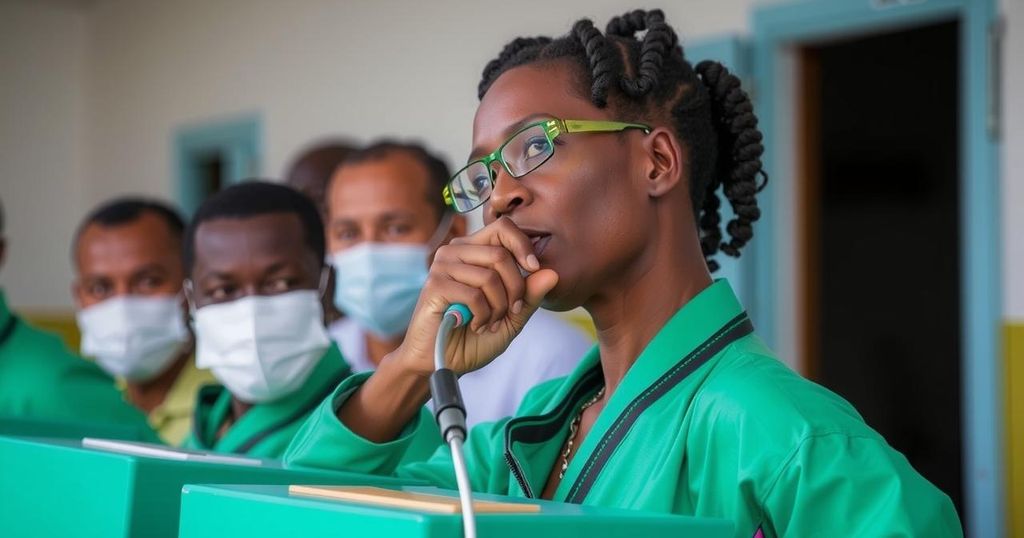Comoros held elections on Sunday, witnessing opposition groups boycotting the polls due to transparency issues. Nour El Fath Azali, President Azali’s son, is contesting, while voting proceeded with significant logistical challenges. The election follows a contentious political background, with accusations of authoritarianism and electoral fraud plaguing the current government.
The Indian Ocean archipelago of Comoros commenced its elections on Sunday to select lawmakers amidst significant opposition dissent. Many opposition factions opted to abstain from voting, labeling the electoral process as lacking transparency. Nour El Fath Azali, the son of Comorian President Azali Assoumani, is contesting for a seat representing a constituency near the capital, Moroni. Reports indicated several polling stations opened tardily due to a delay in the arrival of necessary voting materials, leading to improvised voting setups.
Voter privacy was notably compromised at some booths, where ballots were cast in makeshift arrangements, raising concerns over the electoral integrity. Nour El Fath Azali is seen as gaining significant power following his appointment in July 2024, which allows him to review and approve ministerial decrees. The current political landscape follows a contentious election in January 2024, where President Azali was reconfirmed amidst allegations of fraud, igniting protests resulting in fatalities. Opposition candidates this year are attempting to safeguard against a repeat of the previous legislative boycott that had empowered the ruling Convention for the Renewal of the Comoros (CRC) party unchallenged.
The Comoros, a nation comprising several islands in the Indian Ocean, has faced political instability and accusations of authoritarianism, particularly under the leadership of President Azali Assoumani. After his re-election in January 2024, amid allegations of electoral malpractice and subsequent violence, the political environment remains tense. The current elections were anticipated to be contentious, with many opposition members opting out due to concerns of transparency, echoing past instances where the ruling party gained significant control without genuine competition. Nutrients political actors highlight the challenges faced in maintaining democratic integrity, especially regarding electoral processes and candidate participation.
This election in Comoros underscores the ongoing struggles faced by the nation in achieving transparent and fair democratic practices. The opposition’s decision to snub the vote amidst allegations of electoral impropriety raises significant questions regarding the legitimacy of the exercise and the future of governance under President Azali. As political tensions continue, the outcomes of these elections may further influence the already fragile political landscape of the Comoros.
Original Source: www.barrons.com






